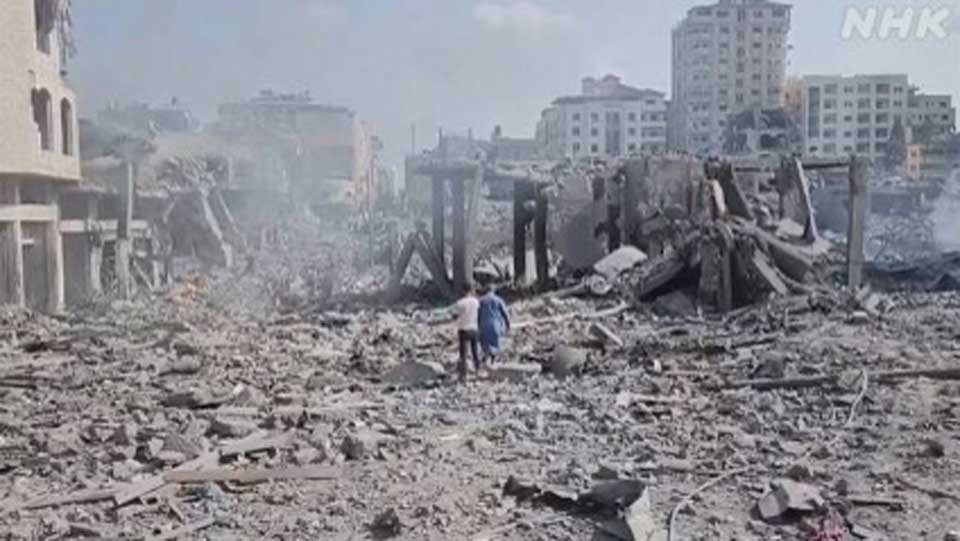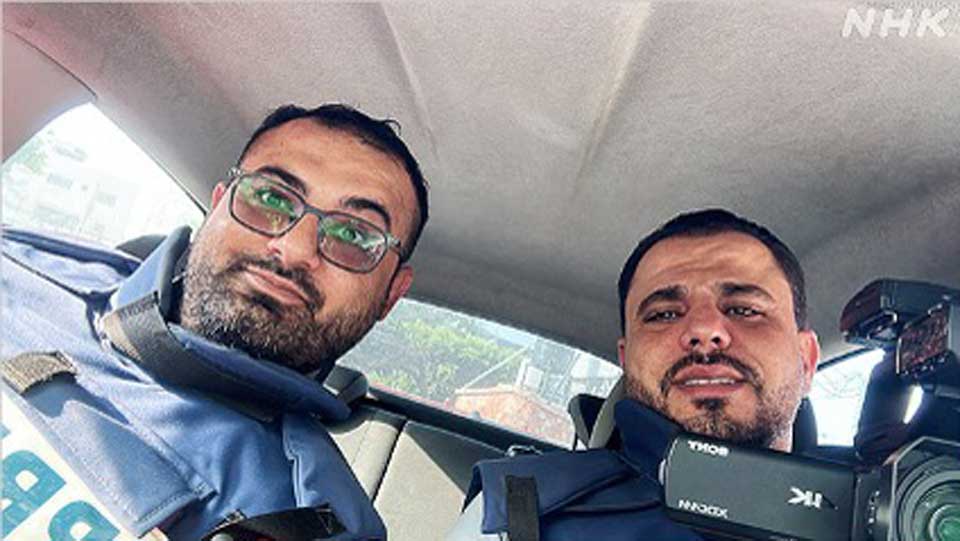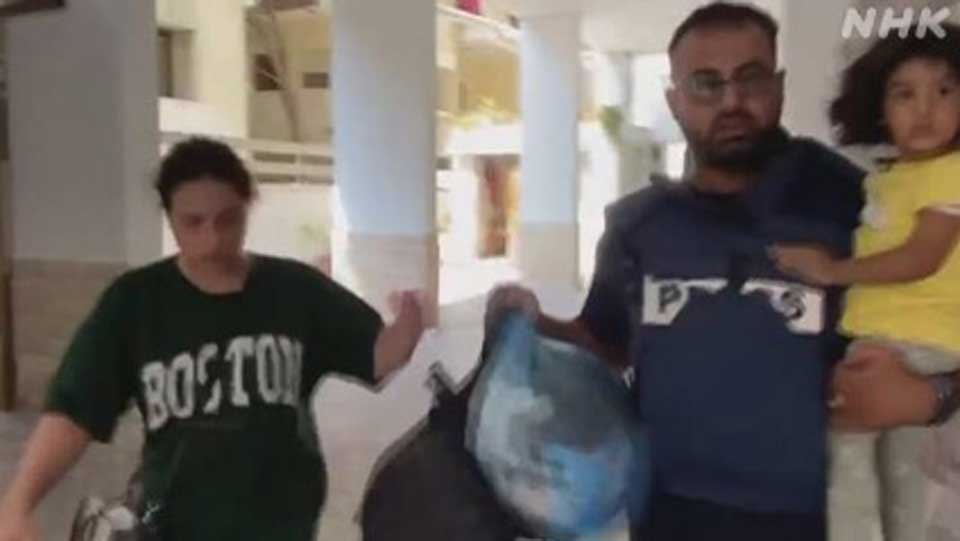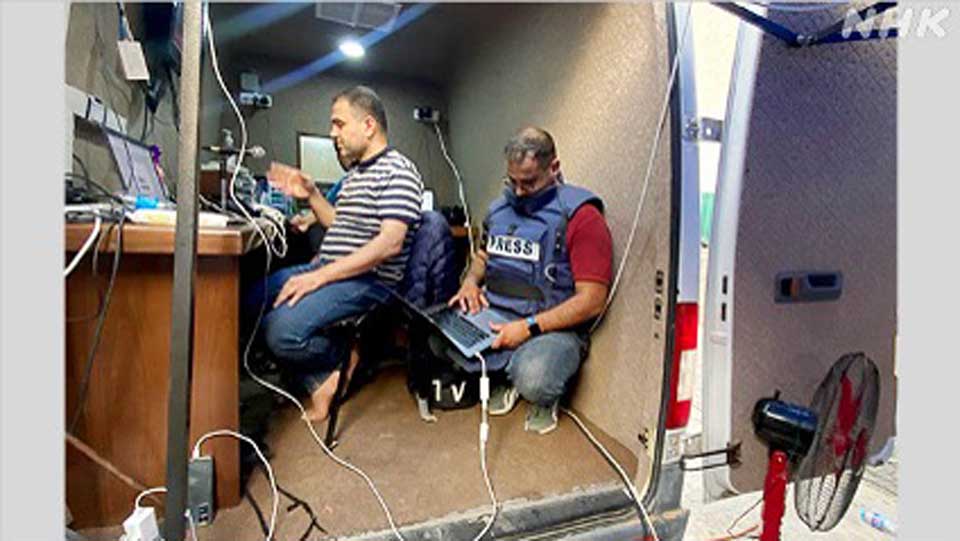"There is no safe place in the Gaza Strip," said Shehada on October 10. "I don't know where to hide."
Israeli forces launched their bombing campaign in response to a surprise attack on October 7 by the Palestinian militant group Hamas, whose fighters also seized scores of hostages.

As of October 16, the escalation has killed more than 4,000 people. The death toll exceeds 1,400 in Israel, and 2,750 in the Gaza Strip. The United Nations Relief and Works Agency for Palestine Refugees says at least one million have been internally displaced so far.
Shehada says things took a serious turn for the worse on October 9. He and Abu Tahoun had just returned to their office after filming at a hospital.
"There were some airstrikes at a refugee camp. At least 50 civilians were killed. We weren't able to reach the area, but we stayed in a hospital for three hours filming injured people, including children.

"When we headed back to the office to edit our footage, I noticed that an Israeli spokesperson had threatened our neighborhood, Ramal.
"From our 11th-floor office, we saw families rushing from their houses. And so we grabbed our most important equipment ― cameras, bulletproof vests, and a laptop."

Shehada and Abu Tahoun have both been at NHK for more than 10 years.
The pair continue to report their findings to NHK's headquarters in Tokyo despite the increasing danger. At one point, they say a massive air strike forced them to take cover behind a staircase.

The violence has already caused immense upheaval for Shehada and his family, who have evacuated several times.
On October 10, Abu Tahoun filmed Shehada running down the stairs carrying his little daughter. They repeatedly called out, "Let's go." The family eventually arrived at a new site, where Shehada hugged his two children.
Schools in the firing line
Running, though, doesn't bring any respite. Israeli forces tell people in the Gaza Strip to find somewhere safe, "but the only shelters we can use are schools, and they are also being targeted," says Shehada. "The feelings of the people here cannot be conveyed by words or footage."
He goes on to say that the attacks come every 30 to 45 minutes, and that the people he has spoken to have found it impossible to sleep.
Electricity and water supplies in the Gaza Strip hang on a knife edge. Shehada says it will be impossible to pump any groundwater without power, adding that many people fear they may lose internet access at any moment.

Israel and Palestine have been engaged in a struggle for decades, and the latest flare-up is one of the most brutal in recent times.
Shehada knows lives are being lost on both sides, but that doesn't make the violence around him any easier to process. As both a native of the Gaza Strip and as a journalist, he has been struggling to remain neutral.
"What I can say is Palestinians have been massacred and attacked for 70 years. But when Israel is the victim, everybody pays attention.
"Israel claims to be targeting Hamas, but what we are seeing in the hospitals and neighborhoods are civilians being killed ― women, children and the elderly.
"The international community must know exactly what's happening in the Gaza Strip. This is a nonstop war crime."


